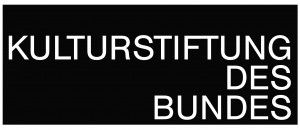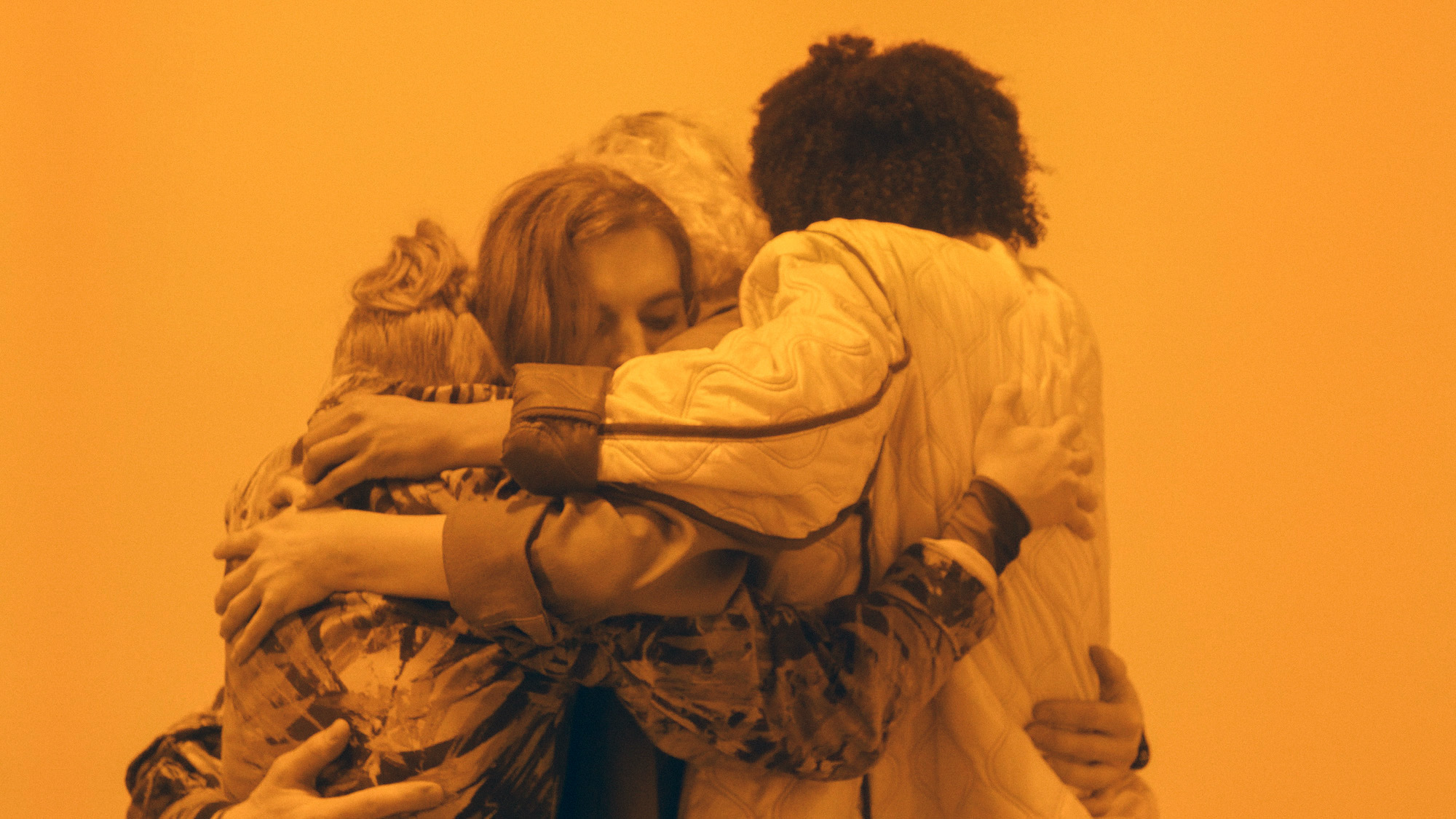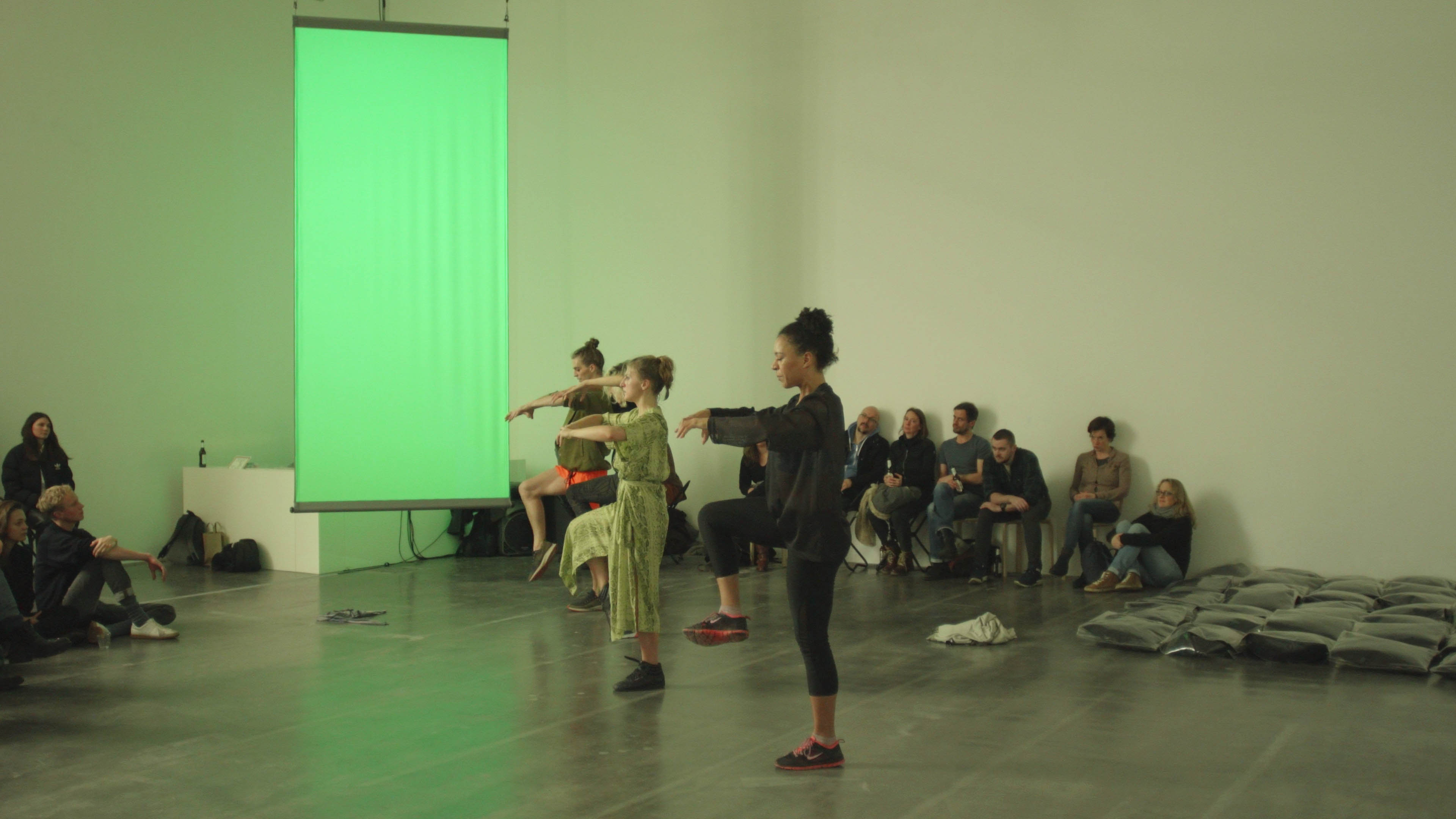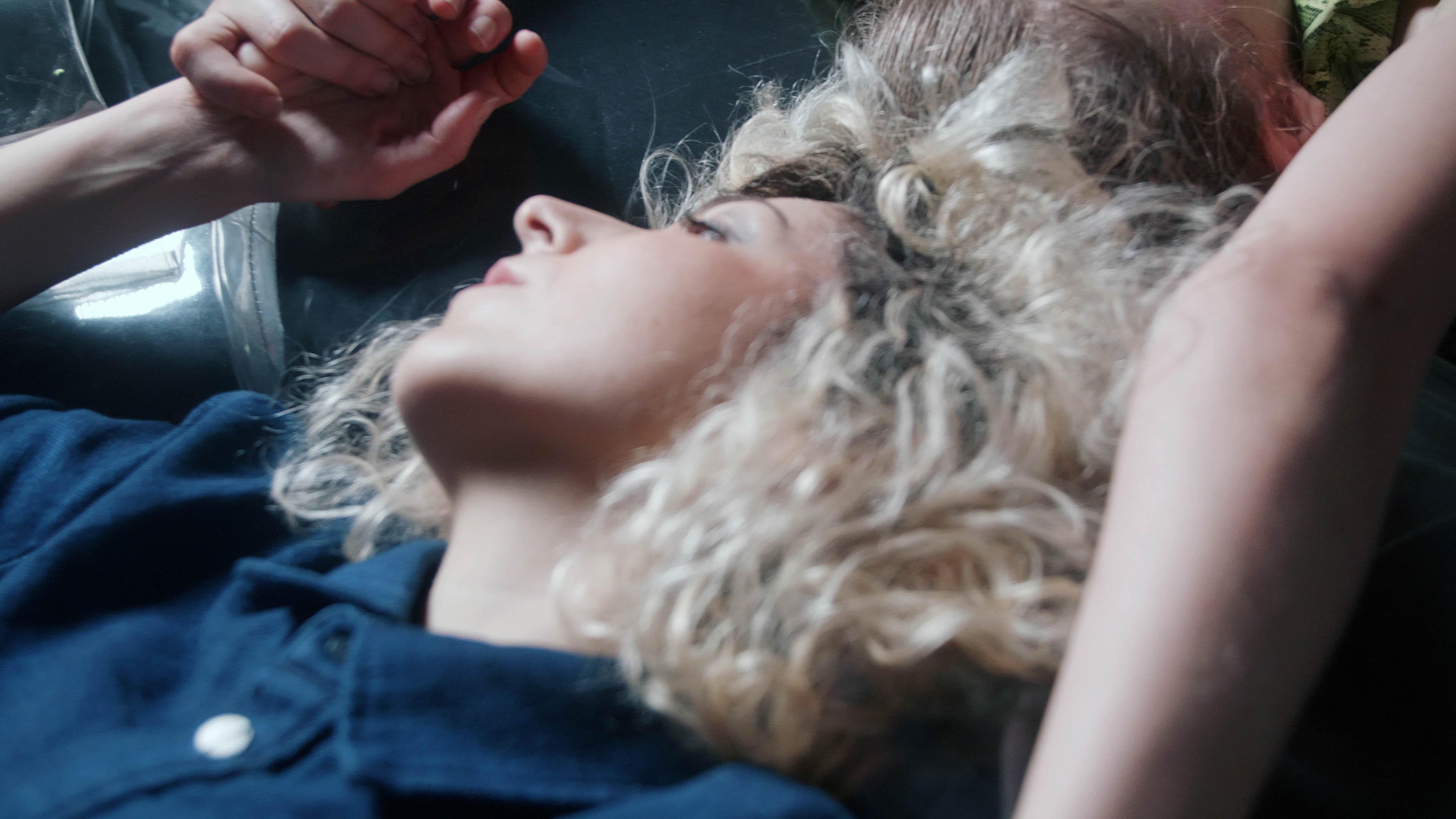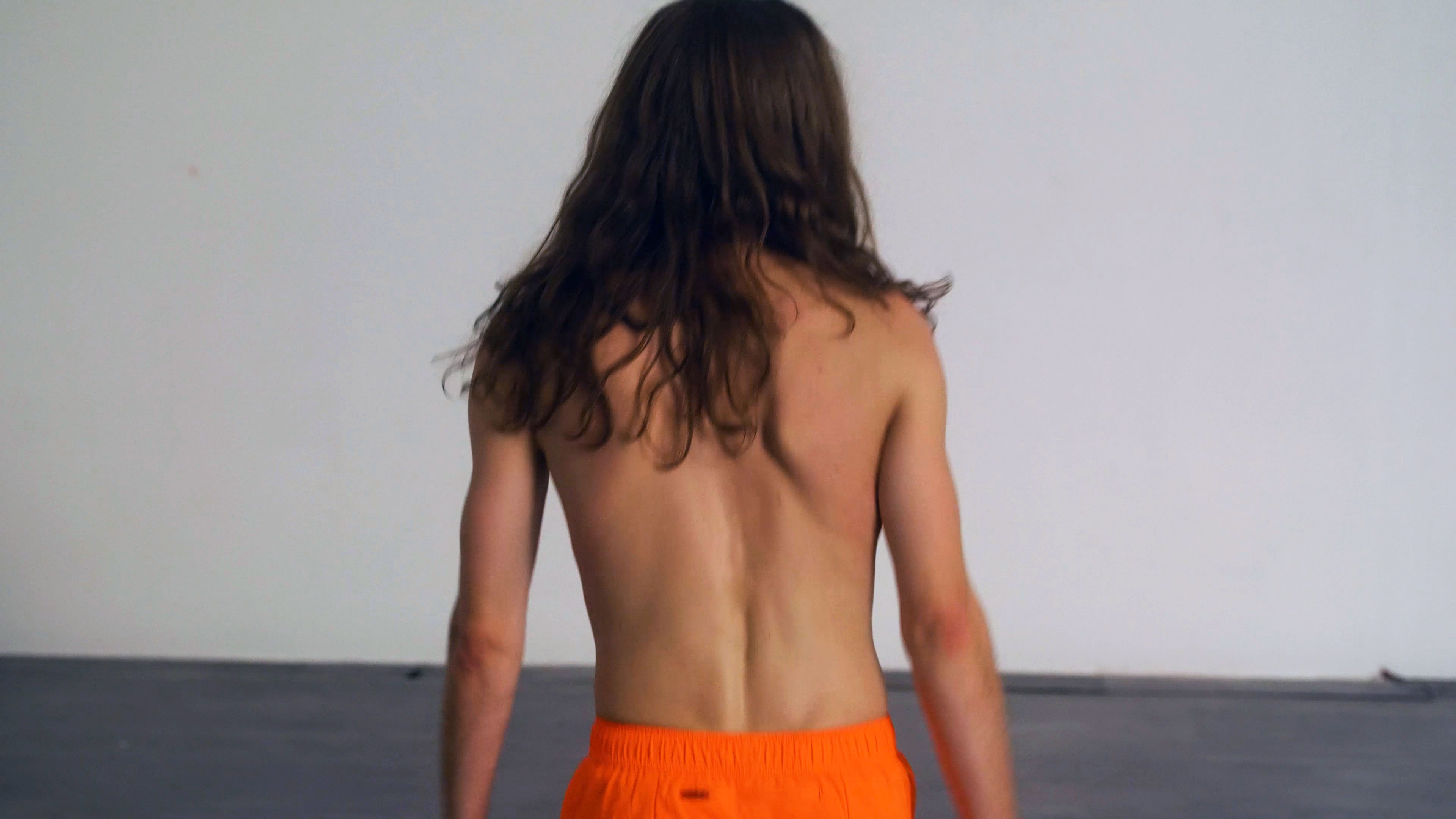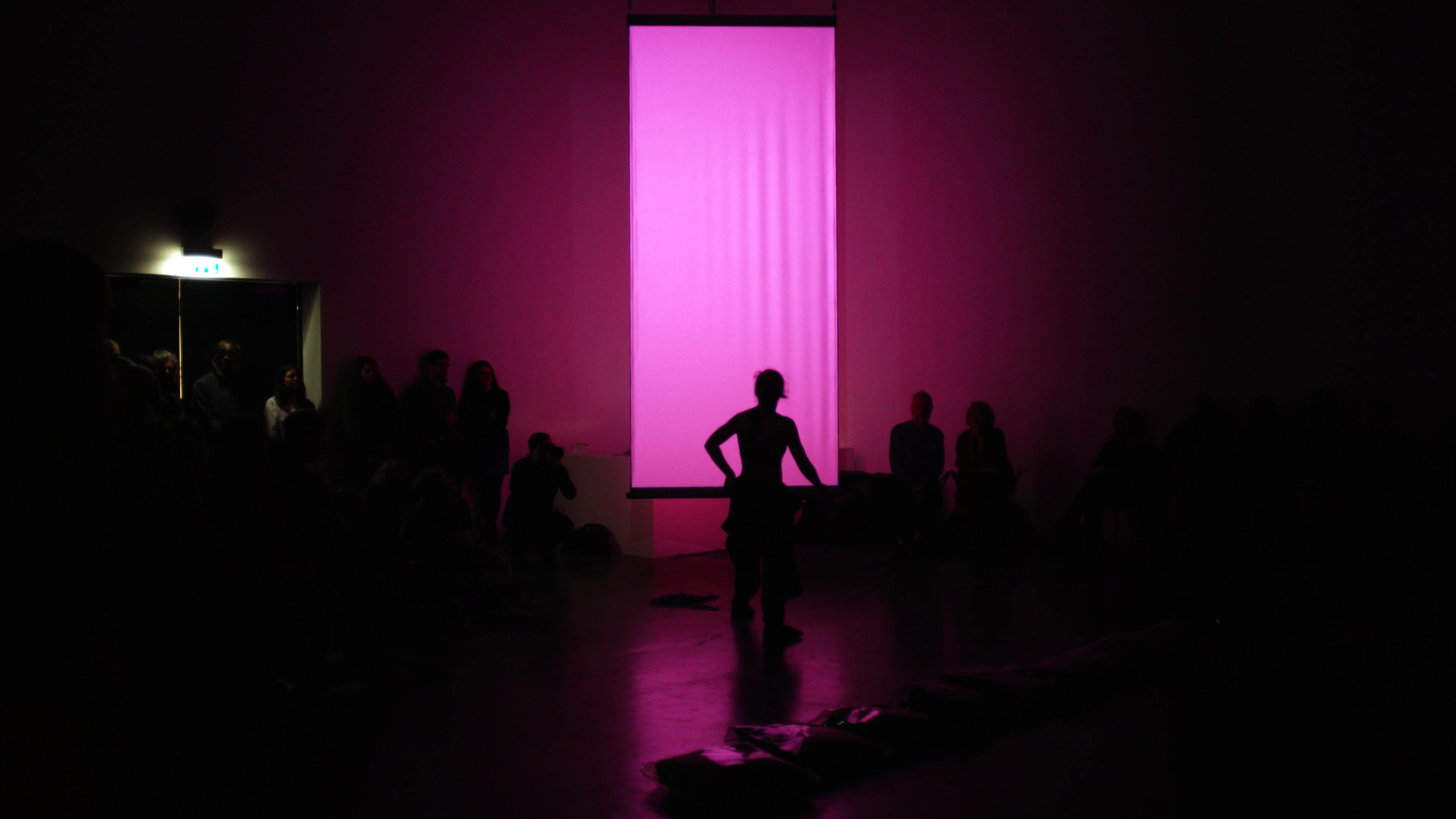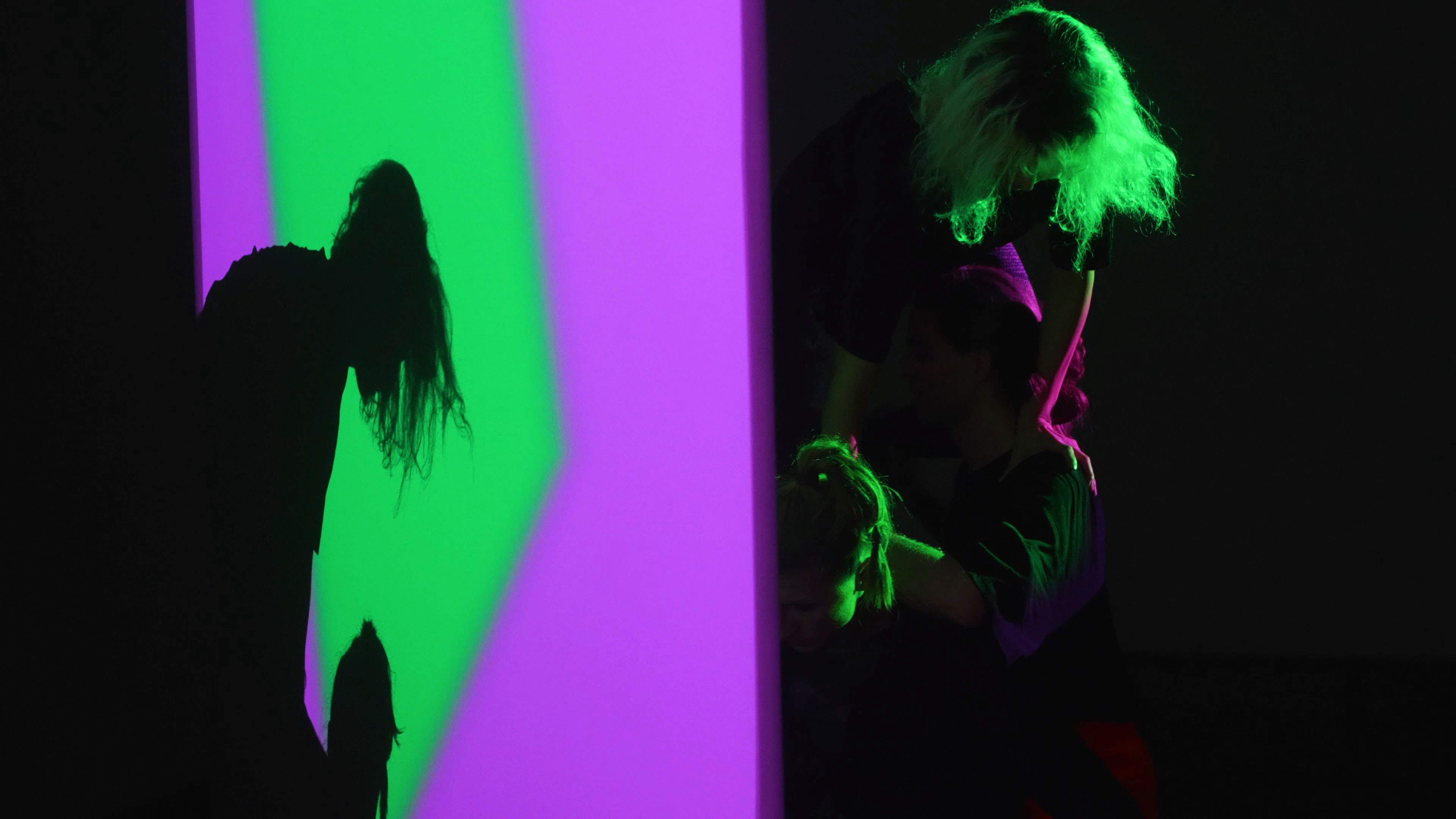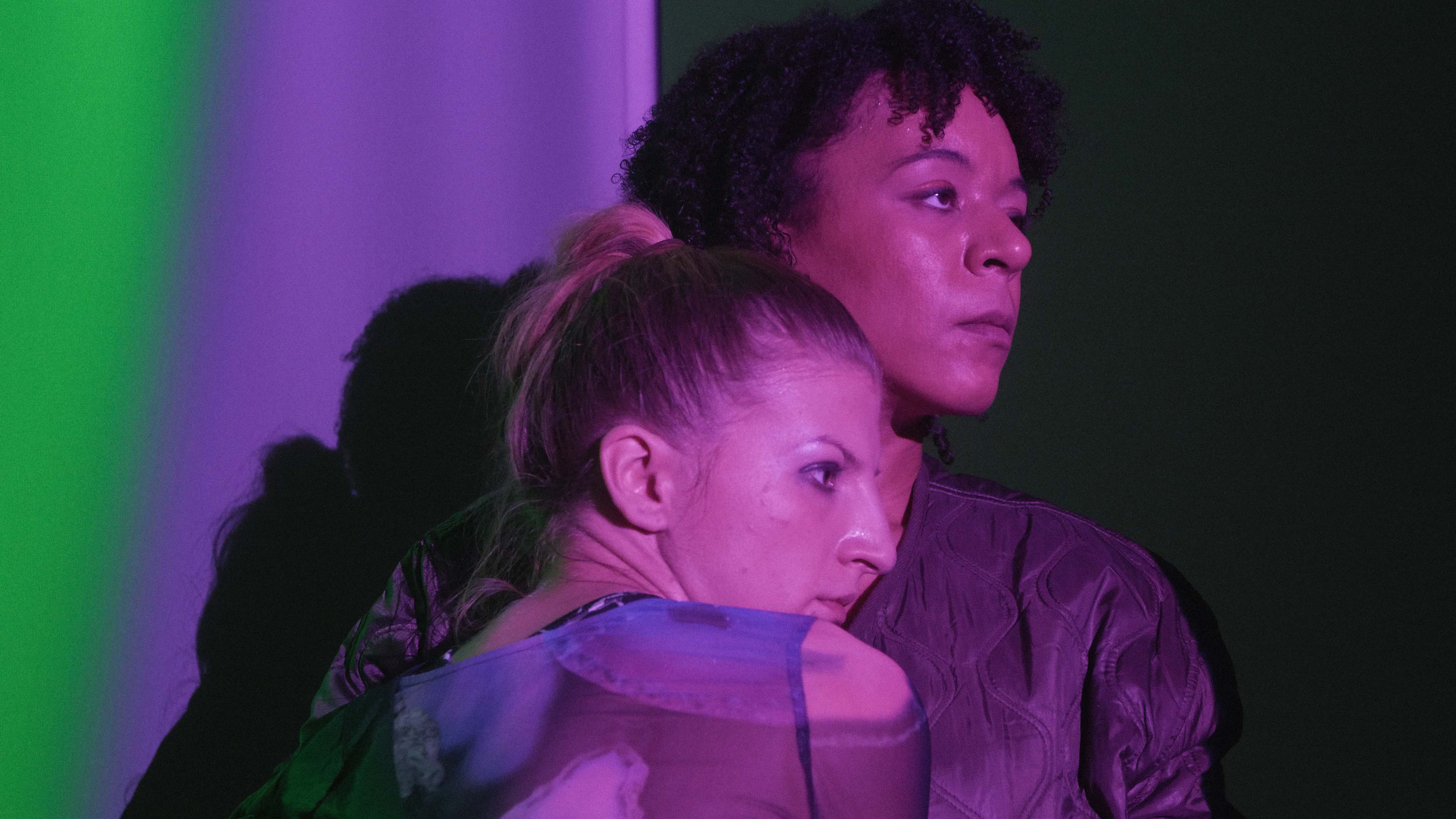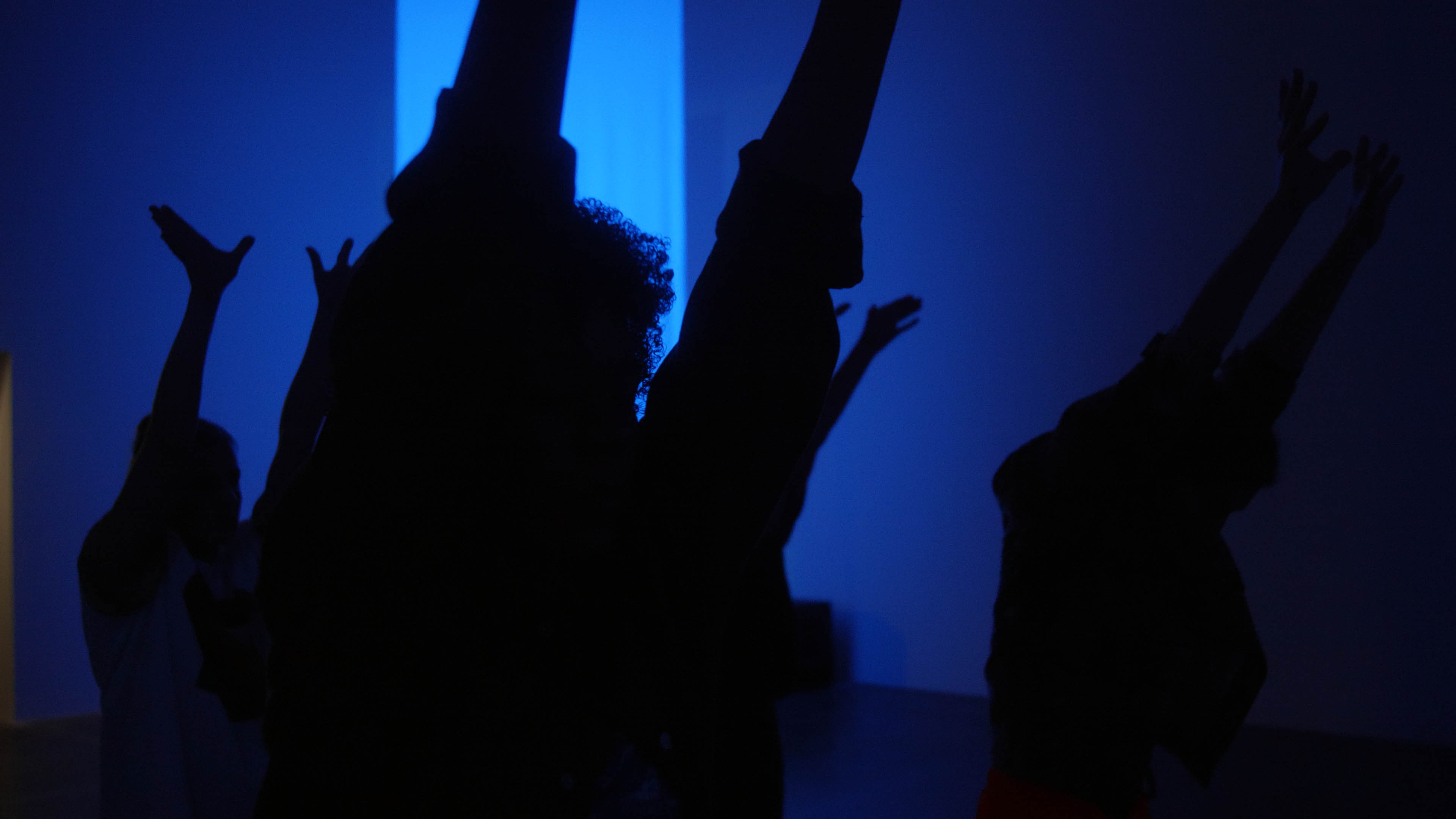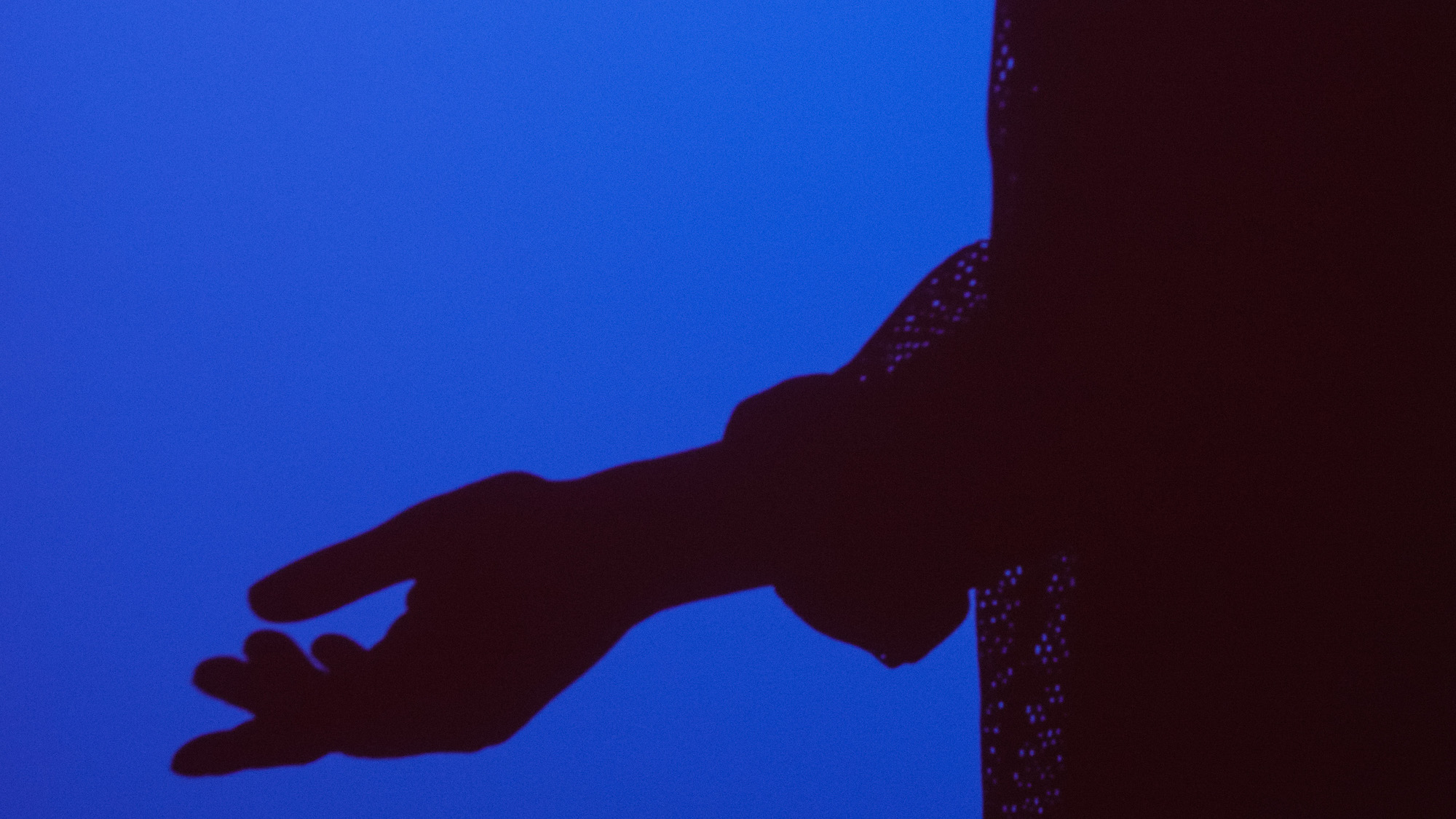Januar, Mai & Juni 2020
INDEPENDENCE IN SPACE
Vom unmöglichen Versuch, Freiheit in einen Raum zu denken
Edith-Russ-Haus für Medienkunst
In Kooperation mit dem Oldenburgischen Staatstheater
Teil des mehrteiligen Projekts FIGHT (FOR) INDEPENDENCE (2018 – 2023)
Über die Installation
Vom 14. Mai bis zum 14. Juni zeigt das Edith-Russ-Haus für Medienkunst die Installation „Independence in Space & Virtual Reality“ jeweils von Sonnenuntergang bis Mitternacht kostenfrei im „Aquarium“, der Fensterfront des Ausstellungshauses. Die Video- und VR-Installation greift die choreographische Installation „Independence in Space“ auf, die im Januar 2020 im Edith-Russ-Haus stattfand, und verwebt sie mit den Recherchen für ihren zukünftigen Film „Independence“. Durch 360°-Filme können die Zuschauerinnen und Zuschauer mit dem eigenen Smartphone an die verschiedenen Recherche-Orte reisen. Die Filme sind über QR-Codes zugänglich, die im „Aquarium“ von 10 Uhr morgens bis Mitternacht von einem Monitor gescannt werden können.
Die Videoinstallation, welche die choreographische Installation „Independence in Space“ filmisch dokumentiert, führt dabei den unmöglichen Versuch, Freiheit in einem Raum zu denken weiter und transportiert ihn in den öffentlichen Raum der Umgebung des Edith-Russ-Hauses.
Über „Independence in Space“
In der vierstündigen, choreographischen Installation „Independence in Space“ im Edith-Russ-Haus für Medienkunst setzt sich die Costa Compagnie mit körperlichen und räumlichen Dynamiken globaler Unabhängigkeitsbewegungen auseinander. Teil des Teams ist die katalanische Tänzerin und Performerin Montserrat Gardó Castillo, die den Konflikt um Unabhängigkeit und Identität in choreographische Befragungen von folkloristischen Körperbildern und -Traditionen übersetzt. Ebenfalls im Team ist die afrodeutsche Protagonistin des dok. Langfilms „Independence“ Helen Wendt, die ihre eigene Erfahrungen zum Thema abstrahiert und in die Arbeit einfließen lässt. Die Installation bewegt sich dabei entlang der Freiheit von Andersdenkenden, von Vereinzelung, Verlust, Aufbruch, Abgrenzung und Solidarität und verbindet sich mit einer Komposition aus Geräuschen, Klängen und Sprachversatzstücken, die aus den von der Costa Compagnie durchgeführten Recherchen in Großbritannien, Bayern, Katalonien und im Südsudan stammen.
Die Künstler*innen beschäftigen sich dabei auch mit der Frage, wie man sich von Traditionen, sozialen und politischen Normen oder auch (sozialen) Bewegungs- und Raummustern unabhängig machen kann. Oder ist eine wirkliche räumlich-politische Unabhängigkeit unmöglich, da der Raum selbst uns immer seine eigenen Grenzen auferlegt?
„Independence in Space“ markiert den abstraktesten Teil im plattform-übergreifenden Kunstprojekt FIGHT (FOR) INDEPENDENCE. Sie bildet einen Schritt aus der Recherche und ihrer Darstellung über Video und Text heraus und übersetzt die politischen Themen in eine die Zuschauenden umgebende, choreographische Assoziations-Welt. Die Besucher*innen werden dazu eingeladen, die Begriffe Unabhängigkeit, Raum, Freiheit und Körper zu hinterfragen und sich selbst zu den Performer*innen und zum Raum im wahrsten Sinne des Wortes in Beziehung zu setzen.
Das hier eingereichte Kurzfilmformat „Independence in Space“ fasst die Arbeit mit filmischen Mitteln zusammen.
INDEPENDENCE IN SPACE & VIRTUAL REALITY – Öffentlich einsehbare Video-Installation
Ausstellung von Donnerstag, den 14. Mai 2020 bis Sonntag, den 14. Juni 2020
Projektion ab Sonnenuntergang
–
INDEPENDENCE IN SPACE – Eine Choreographische Installation
Am Samstag und Sonntag, den 11. und 12. Januar 2020, Beginn um 18.00 / 15:00 Uhr
Dauer: ca. 240 Minuten
Jederzeit frei begehbar
Eintritt frei
TEAM @ Independence in Space
Performance, Co-Creation Montserrat Gardó Castillo, Katharina Shakina, Helen Wendt Choreographie, Performance Jascha Viehstädt Künstlerische Leitung, Recherche Felix Meyer-Christian Komposition, Soundart Marcus Thomas Programming, Video, Virtual Reality Erik Kundt Dramaturgie Marc-Oliver Krampe Produktionsleitung Franziska Merlo Kamera und Videoschnitt Dokumentation Thomas Oswald
Eine Produktion von Costa Compagnie in Kooperation mit dem Staatstheater Nürnberg und dem Oldenburgischen Staatstheater, sowie dem Edith-Russ-Haus für Medienkunst.
Funded in the Fonds Doppelpass by the Federal Foundation of Culture.
Kindly supported by INVR.SPACE
Tanz den Separatismus
Die Costa Compagnie will globalen Unabhängigkeitsbewegungen im Tanz auf die Spur kommen. Zu erleben ist das am Wochenende in Oldenburg.
Erschienen am 11.01.2020 unter TAZ
11. 1. 2020 / Von Jan-Paul Koopmann / taz.bremen Redakteur
BREMEN taz | Einfach macht es sich Montserrat Gardó Castillo nicht mit ihrer Identität. „Die ist kompliziert“, sagt die 1982 in Barcelona geborene Tänzerin, „vielleicht komplizierter als viele andere.“ Es fängt schon mit der Sprache an: Zu Hause in der Familie hat sie Katalanisch gesprochen, mit den meisten Freund*innen hingegen Spanisch. Dazu hat sie eine französische Schule besucht, lebt seit 13 Jahren in Deutschland und arbeitet noch etwas länger in internationalen Zusammenhängen – auf Englisch, versteht sich.
Dass die katalanischen Unabhängigkeitsbestrebungen sie dermaßen mitnehmen würden, wie es nun passiert ist, hatte Castillo jedenfalls nicht erwartet. Zumal sie sich von der Sozialisation her sowieso zu diesem selbstverständlichen US-amerikanischen Weltbürgertum zählt, wie die meisten ihres Jahrgangs: mit früher „Baywatch“ und heute Netflix.
Die Mehrdeutigkeit ihrer Geschichte ist mustergültig für das Projekt „Fight (For) Independence“ der Costa Compagnie, dessen zweiter Teil am Wochenende im Oldenburger Edith-Russ-Haus für Medienkunst zu sehen ist.
Die Performer*innen haben auf der ganzen Welt recherchiert und Unabhängigkeitsbewegungen besucht: nicht nur in Katalonien, sondern auch im Südsudan oder in Großbritannien. Dass die Compagnie auch der Bayernpartei ihre Aufwartung gemacht hat, verrät schon, dass man zu einer früher weit verbreiteten Idee der politischen Linken mindestens auf Abstand gegangen ist: der einer antiimperialistischen Avantgarde nämlich, eines „revolutionären Subjekts“, auf das lange Verlass war.
Sie werden sich erinnern: Nachdem die Revolutionen der westlichen Arbeiterklasse durch die Bank niedergeschlagen oder gar nicht erst passiert waren, hatte sich die Linke den separatistischen Bewegungen zugewandt. Aufgeladen bis zum „Geht nicht mehr“ mit Bildern vom Kampf Davids gegen Goliath, Freiheit, Authentizität und eben auch Identität.
Für Regisseur Felix Meyer-Christian ist das heute nur noch Anlass einer Spurensuche, wenn er offen fragt: „Ist das noch ein progressives Projekt?“ Oder ist es doch nur die Renaissance reaktionärer Nationalismen?
Die Kunst nähert sich den sozialen Bewegungen auf verschiedenen Wegen. Die Costa Compagnie hat Interviews geführt, Videos gemacht und wird in den Folgeproduktionen auch mit Virtual-Reality-Brillen arbeiten, um einen möglichst direkten, immersiven Zugang zu eröffnen.
Tanznummer ohne gesprochene Worte
Die übrigen Teile der Reihe, an der neben Edith-Russ-Haus und der Compagnie auch die Staatstheater Oldenburg und Nürnberg beteiligt sind, werden im Mai beim „Flausen + Banden Festival“ in Oldenburg zu sehen sein. Der jetzt anstehende Teil, „Independence in Space“, ist vielleicht der bodenständigste, obgleich es der abstrakteste ist: Es ist eine Tanznummer, gänzlich ohne gesprochene Worte.
Und da kommt Montserrat Gardó Castillo ins Spiel, die gemeinsam mit Tänzer und Choreograf Jascha Viehstädt und den Schauspielerinnen Katharina Shakina und Helen Wendt versuchen wird, die grundsätzliche Möglichkeit von Freiheit im Raum körperlich zu erforschen: als „begehbare Installation“, wie es heißt.
„Independence in Space“
Am Samstag und Sonntag werden die Künstlerinnen je vier Stunden performen, wobei es dem Publikum offensteht, wann, wie lange und auf welchen Wegen sie „Independence in Space“ erleben wollen. Das meint nicht nur den organisatorischen Aufbau der Veranstaltung, sondern betrifft auch die inhaltliche Ebene. Denn obwohl das Material der Produktion diesmal aus Katalonien stammt, soll es doch jede*n betreffen, der oder die Freiheit individuell entlang der Grenzen von Kultur, Nation, Hautfarbe, Gender oder sexueller Orientierung verhandeln muss. So jedenfalls formuliert die Costa Compagnie ihren Anspruch.
Hochgradig reflektiert
Montserrat Gardó Castillo bietet ihre eigene Erfahrung demnach ganz ausdrücklich als Muster an. Hochgradig reflektiert beschreibt die auch als Journalistin ausgebildete Tänzerin, wie bei der Recherche Emotionen und rationale Überlegungen aufeinanderprallten. Natürlich wisse sie vom Kopf her, dass Universalismus richtig und wichtig sei. „Trotzdem bekomme ich heute noch Gänsehaut“, sagt sie beim Gedanken an die Reise.
In Katalonien hat sie mit der Compagnie Volksfeste besucht, und bei den „Castells“ mitgewirkt: mehrstöckige Menschenpyramiden, die schnell und nicht ganz ungefährlich auf Straßen und Marktplätzen geformt werden. In dieser Kombination aus Folklore und extremer Körperlichkeit habe sie eine kollektive Erfahrung gemacht, die ihr bis dahin fremd war: „Plötzlich habe ich mich katalanisch gefühlt.“
Kosmopolitane Jazzmontagen
Das Bühnengeschehen ist nun eine Abstraktion dieser Emotion, statt des folkloristischen Materials sind elektronische Rhythmen und Störgeräusche zu hören sowie kosmopolitane Jazzmontagen und Field Recordings – also Hintergrundsounds von Demonstrationen oder aus der Natur.
Und da verfliegt dann auch die letzte Verwunderung darüber, was das Edith-Russ-Haus für Medienkunst, das mit dieser Veranstaltung übrigens sein 20. Jahr einläutet, nun eigentlich mit Tanz zu schaffen hat. Politisch und in Sachen multimedialer Ästhetik ist „Independence in Space“ hier nämlich absolut kein Fremdkörper. Obwohl es natürlich genau darum geht.
